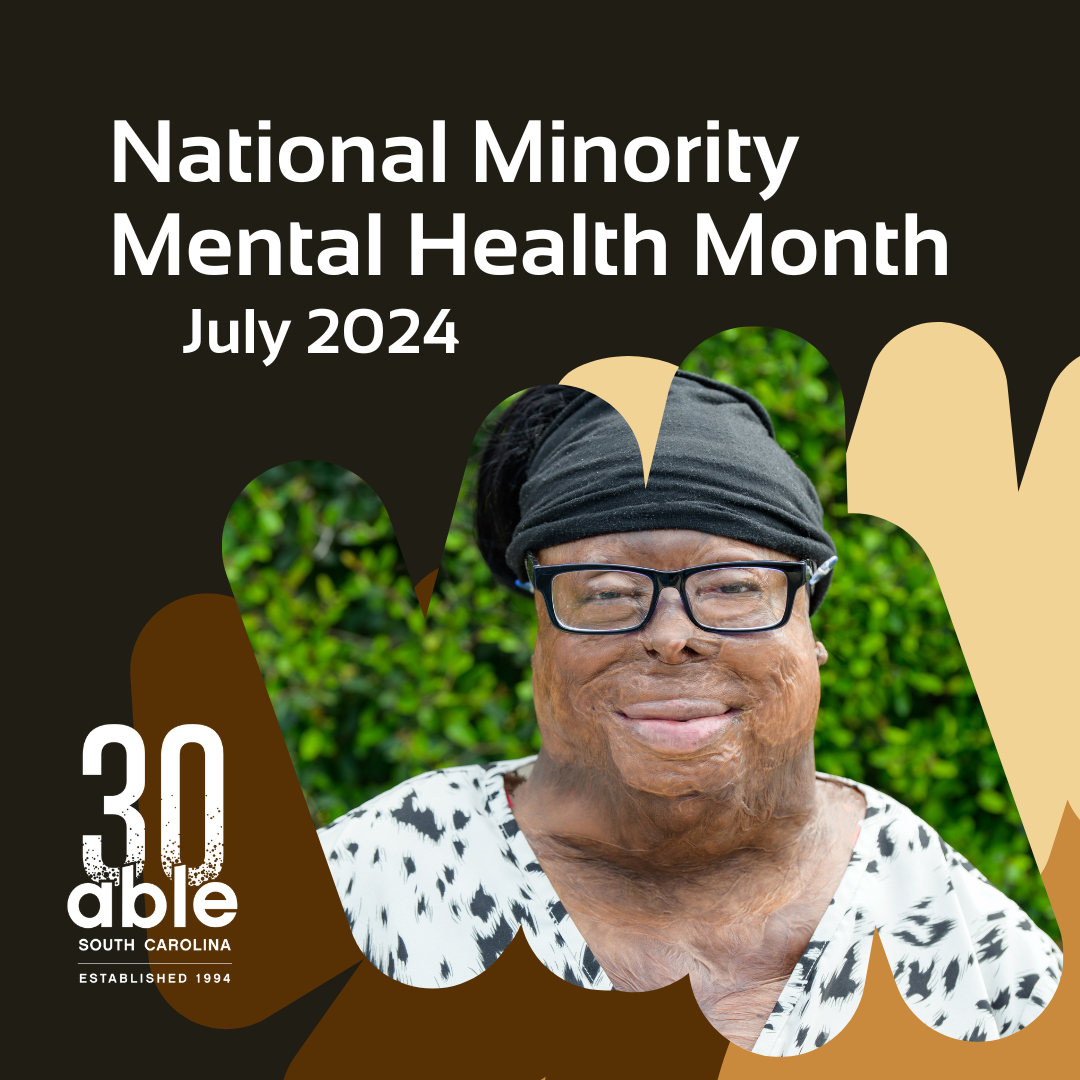Trigger warning: mention of psychiatric disabilities and related symptoms
Continuing
Able SC’s recognition of Minority Mental Health Month, we are pleased
to share a powerful recovery story from our colleague, Laquanda Clark. Laquanda
is a middle-aged Black woman, a burn survivor, and a member of the Deaf
community. She experienced postpartum depression after the birth of
both her children. "Postpartum"
means the time after having a baby. Some people feel sad, worried, or
tired in the days after giving birth, known as the "baby blues." These
feelings usually go away within a few days. But if they last more than 2
weeks, it might be postpartum depression, which is not a normal part of
motherhood. Postpartum
depression is a serious condition that affects your mind and body. It
makes sad and hopeless feelings stay and can disrupt your daily life.
You might not feel connected to your baby, or you might not feel love or
care for them. These feelings can range from mild to severe. Two
months after her first child was born, Laquanda felt extremely sad. She
wasn't enjoying motherhood and felt anxious whenever her daughter was
out of sight. Her husband and family noticed she wasn't doing well and
encouraged her to talk to her obstetrician (the doctor that delivered
her baby). The doctor told her that postpartum depression is common and
prescribed medication to help. Once she started the medication, her
depression eased, and she began to enjoy motherhood. When
her second child was born, Laquanda experienced postpartum depression
again, but with different symptoms. She didn't want to hold her baby,
cried a lot, and felt sleepy all the time. She just wanted to stay in
bed. Again, she sought help from her doctor, who prescribed medication.
This time, she decided to stay on the medication after the postpartum
period because her anxiety increased after the second birth. Laquanda’s tips for recovering from postpartum depression: Do you need support for postpartum depression? Here are some resources to learn more and seek help: Department of Health and Human Services, Office on Women’s Health, Postpartum Depression Mental Health America, Pregnancy and Postpartum Disorders NPR, Life Kit, What is postpartum depression? How to recognize the signs and get help | 
No comments:
Post a Comment